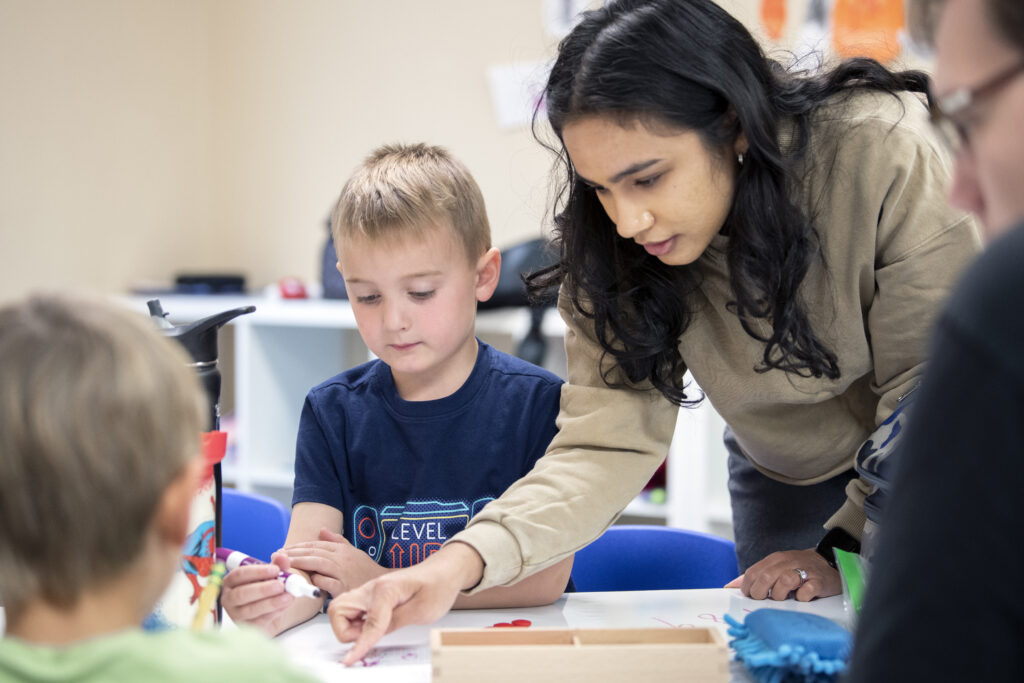Professional development for teachers: Why it’s essential

In the realm of education, the adage “the learning never stops” holds true not just for students, but also for teachers. Lifelong learning is an essential facet of being an educator, and professional development for teachers is a key component of this journey. This comprehensive guide will delve into the importance of professional development, its impact on student outcomes, and innovative strategies for effective implementation.
Understanding professional development for teachers
Professional development for teachers encompasses a variety of learning opportunities, from formal seminars, courses, and workshops, to informal learning communities, peer collaborations, and independent research. These educational endeavors allow teachers to continuously hone their skills, update their knowledge, and ultimately, enhance their teaching effectiveness. They are particularly crucial in adapting to the evolving landscape of pedagogy, technology integration, and student needs.
Why is professional development essential?
Influence on student outcomes
The quality of teaching directly impacts student achievement. When educators participate in professional development, they are better equipped with the tools and strategies to cater to diverse learning needs and styles. By fostering a learning environment that values individuality and creativity, educators can boost student engagement, foster a love for learning, and consequently, improve outcomes.

Support for new teachers
Professional development plays a pivotal role in supporting new educators. The early years of teaching can be daunting, with challenges ranging from lesson planning to classroom management. Targeted professional development can provide new teachers with the skills and confidence to navigate these challenges, fostering their growth and promoting retention in the profession.
Promotion of a growth mindset
Professional development encourages a growth mindset among educators. It communicates the importance of continuous learning and improvement, fostering a culture where both teachers and students are eager to learn. Regular professional development signals that the school community values the work of teachers and is committed to their growth.
Addressing the challenges of professional development
Despite its importance, professional development often comes with challenges. Time, funding, and engagement are common hurdles in the path of effective professional development. Additionally, broad, non-specific professional development sessions may not resonate with all teachers, leading to a lack of interest and reduced impact. To address these challenges, it is crucial to adopt a targeted, comprehensive approach to professional development.

Elevating new educators with professional development
For new educators, professional development is a lifeline. The transition from teacher training to real-world classrooms can be overwhelming, and professional development provides the support and guidance needed during this crucial phase. From managing classroom dynamics to implementing effective teaching strategies, professional development equips new teachers with the necessary skills to excel in their roles.
Promoting a growth mindset through professional development
One of the most transformative effects of professional development is the promotion of a growth mindset. This mentality, which asserts that abilities and intelligence can be developed through dedication and hard work, is foundational for both teachers and students. Through professional development, teachers can model a growth mindset, demonstrating to their students that learning is a continuous, lifelong journey.
Strategies for engaging and effective professional development
Making it specific
Professional development should be tailored to the unique needs and interests of teachers. A one-size-fits-all approach can lead to disengagement and inefficacy. Instead, solicit feedback from teachers on the areas they want to learn more about and give them a choice on the topics or methods of learning. This ensures that professional development is relevant, engaging, and effective.
Investing in teachers
Investing in teachers is investing in education. Professional development shows teachers that they are valued and that their growth matters. This, in turn, boosts morale, improves job satisfaction, and leads to better student outcomes.

Making it ongoing
The success of professional development lies not just in its immediate impact, but also in its longevity. Continuous learning and support are key to ensuring that teachers implement new strategies and ideas in their classrooms.
Embedding it into the teaching process
Professional development should not be an add-on, but an integral part of the teaching process. By making it a regular part of the school day, teachers can immediately apply what they learn, reinforcing their new knowledge and skills.
Incorporating professional development into teaching practice
Effective professional development goes beyond imparting knowledge—it enables teachers to incorporate new strategies into their teaching practice. This requires ongoing support, feedback, and opportunities for reflection. With this comprehensive approach, professional development can have a tangible impact on teaching effectiveness and student achievement.
Personalizing teacher learning with a professional development plan
Just as students benefit from personalized learning, teachers can greatly benefit from personalized professional development. A Professional Development Plan sets out individual learning goals for educators and provides a roadmap for achieving them. This personalized approach fosters motivation, ownership, and engagement in professional development.

Professional development resources for educators
There are a wealth of resources available for educators seeking professional development opportunities. These include online courses, webinars, mentoring programs, books, and social media communities. By leveraging these resources, educators can access a diverse range of learning opportunities tailored to their specific needs and interests.
One powerful resource is TeachEmpowered. TeachEmpowered is a teacher support network that provides free training & classroom resources for teachers, including professional development & digital tools.
Empowered supports teachers with a refreshing alternative through experiential learning, with 98% of teachers saying they are more effective than ever before.
Learn how you can gain access to these resources at www.TeachEmpowered.org.
The future of professional development: A paradigm shift
Looking to the future, professional development for teachers is poised for a paradigm shift. Emerging trends include individualized education, teacher empowerment, comprehensive teacher training, and alternative schooling models. These innovative approaches promise to redefine professional development and pave the way for a more inclusive, empowering education system.
Additional K-12 education resources
Interested in discovering more about innovative ways to transform American education? Here are some additional resources to explore:
- Access Stand Together’s K-12 Education Landscape Report.
- Download Stand Together’s Education Research Papers.
- Access Stand Together’s Guide To The Best Education Programs.
- Watch Inspiring Back To School Videos.

